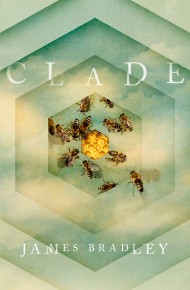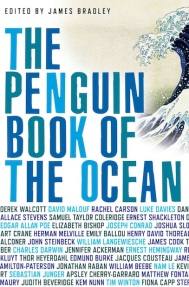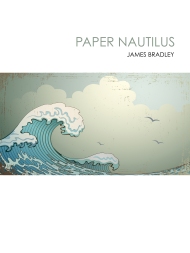Ian McEwan, Sweet Tooth
 Speaking about his new novel, Sweet Tooth, earlier this year, Ian McEwan compared writers to spies, going on to declare “all novels are spy novels”. As marketing lines go it’s a nice one, if a little self-regarding: pleasantly but unexceptionally provocative, flattering to both writer and reader, charged with an agreeable frisson of transgression.
Speaking about his new novel, Sweet Tooth, earlier this year, Ian McEwan compared writers to spies, going on to declare “all novels are spy novels”. As marketing lines go it’s a nice one, if a little self-regarding: pleasantly but unexceptionally provocative, flattering to both writer and reader, charged with an agreeable frisson of transgression.
It’s tempting to say something similar might be said of Sweet Tooth itself, a slick, slightly glib, politically quiescent excursion into Le Carre-land that flatters the reader with the illusion of a seriousness it doesn’t possess.
Set against the backdrop of the strike-ravaged, politically dysfunctional Britain of the early 1970s, and taking its cues from the scandal surrounding the 1967 revelation that the journal Encounter had been receiving funding from the CIA, Sweet Tooth focuses on Serena Frome, a bishop’s daughter recruited by MI5 and assigned to a program designed to identify and support writers and academics prepared to speak out against Communism and the perceived anti-Americanism of the traditional Left.
For Serena, a voracious reader, it’s a dream assignment, even more so once she meets Tom Haley, the young writer she has been assigned. Yet when she begins a relationship with Haley she quickly enters unfamiliar and treacherous territory and sets in train a series of events that ensure the mission ends in disgrace and dismissal for her, and literary ruin for him.
It’s subject matter McEwan has explored before, perhaps most obviously in his 1990 novel, The Innocent. Yet while The Innocent – a novel mostly notable for the astonishingly gruesome sequence that occupies its second half – is chiefly concerned with the human cost of subterfuge, Sweet Tooth has at its heart a series of rather more rarefied questions about truth and fiction and the often contested ground between the two.
If it feels a little familiar that’s because it is. Similar questions – and indeed similar tricks – lie at the heart of McEwan’s immensely successful novel, Atonement, a book to which Sweet Tooth owes quite a bit. However these questions – and indeed the metafictional devices that sustain them – are also the outward manifestation of a preoccupation with fictionality and appropriation that has been present in McEwan’s work from the very start.
In Sweet Tooth these concerns are given added frisson by the fact that Tom Haley, the writer with whom Serena falls in love, is a thinly-disguised version of McEwan himself.
Exactly why McEwan has elected to cast himself in his own novel is never entirely clear. Certainly it allows him room to engage in some playful reminiscing – the novel features an affectionate portrait of the publishers Ian Hamilton and Tom Maschler, as well as an encounter with the young Martin Amis from which Tom emerges considerably the worse – and occasional moments of fun at the expense of his younger self, and at the pretensions of his early fiction (many of the stories Tom writes are identifiable as versions of McEwan’s own, and Tom’s debut novel, The Levels, is clearly an extended version of ‘Two Fragments’, a story that appeared in McEwan’s second collection).
But by the same token there are more than a few moments – the rather cringe-making descriptions of Tom’s physical beauty and virile lovemaking for instance, or the sententious pronouncements on politics and literature – when one cannot help but wish for a little more distance between novelist and character.
The question of how to respond to these elements is complicated further by the novel’s final chapter, which contains a twist that alters our understanding of everything that has gone before. What one makes of this twist is probably at least partly a matter of perspective: while I only barely restrained myself from throwing the book at the wall in disgust I suspect many will be thrilled by its audacity.
Yet in a way Sweet Tooth’s real problem isn’t its ending or even its metafictional conceits, but its curiously complacent politics. Where the novels of Le Carre (or indeed John Banville’s classic fictionalisation of the life of Anthony Blunt, The Untouchable) are written with an outsider’s eye for the cant and hypocrisy of power, Sweet Tooth sees these qualities as little more than plot devices.
This is not to say it’s entirely uncritical of the world it inhabits. The portrait of the misogyny of MI5 is clear-eyed and merciless, and at one point Serena’s friend and fellow MI5 recruit, Shirley, brings trouble down on the two of them by observing slightly too loudly “these berks want to stage a coup” in front of a retired brigadier concerned about the influence of radical unions over the Labour Party.
But it is to say that there is something altogether too easy in the insistency of its critique of the Left’s refusal to acknowledge the reality of life behind the Iron Curtain, and in the book’s carefully calibrated mockery of Serena’s middlebrow tastes.
That this should be surprising is probably a failing on my part. After all it’s been a long time since McEwan has been interested in serving up anything more than elegant entertainments. Yet reading his portrait of Tom Haley it was difficult not to wonder what the much younger McEwan who wrote the breathtakingly disquieting stories Sweet Tooth attributes to Haley would have made of his older self, and indeed a book like Sweet Tooth. Not much, I suspect.
First published in The Weekend Australian, 8 September 2012.









I loved every word of this novel. Why can’t McEwan be enjoyed for his artistry and skill and not for NOT being LeCarre or Banville? Noone ever complains that Banville doesn’t address issues like McEwan. Since when has drawing on your own experience in your writing been unacceptable? Or is it because noone is allowed to be THAT good and THAT successful? Why not put the boots into “Shades of Grey” or Jeffrey Archer instead ?
Great review and really spot on with how I interpreted the novel. I too wanted to throw the book against the wall when I read the final chapter but out of respect for the paintwork in my apartment I complained about it on goodreads instead.